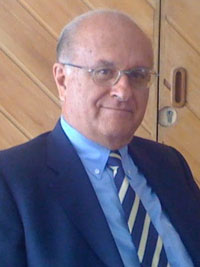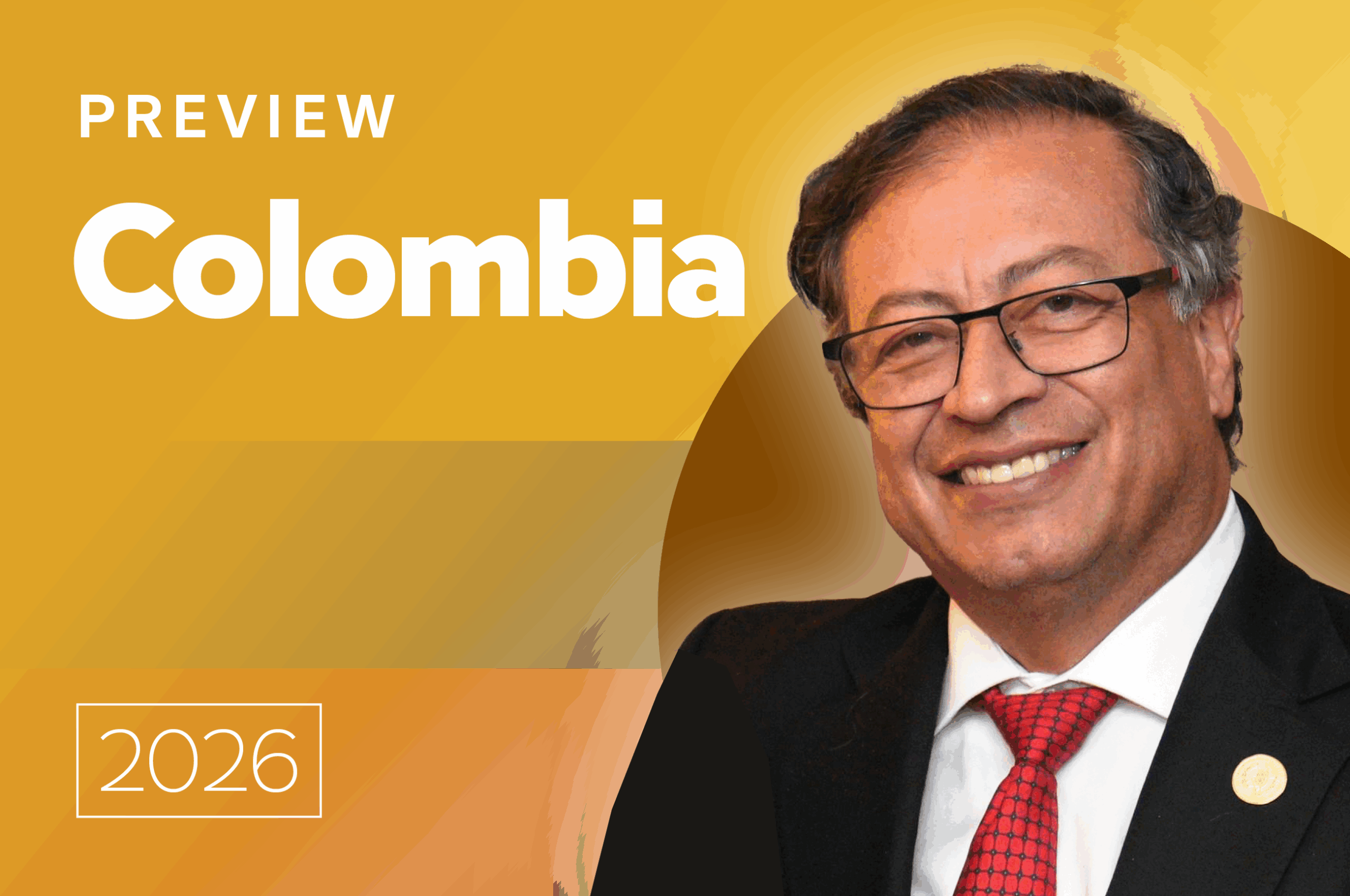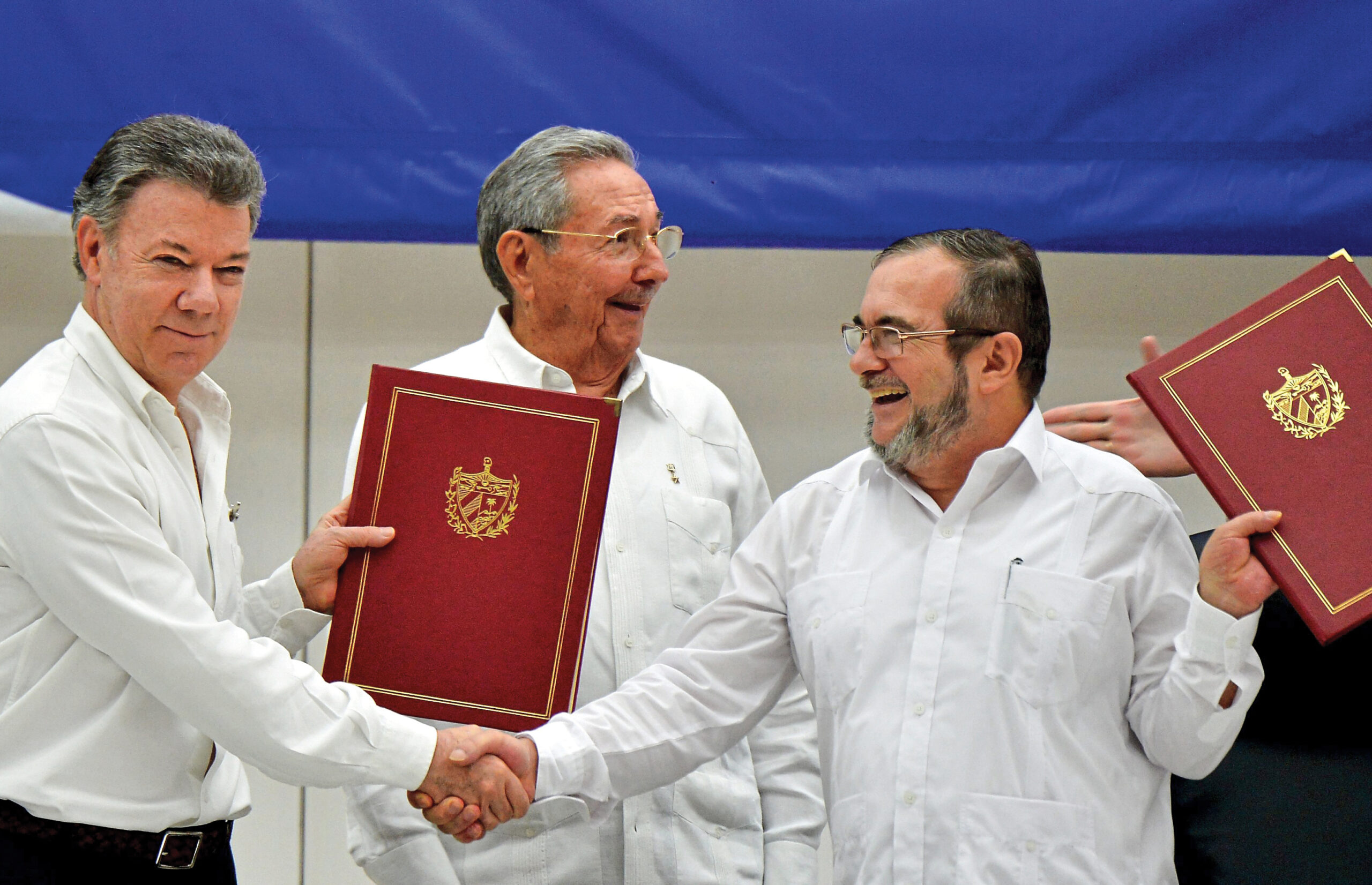Interview: Connect Bogota's Francisco Manrique on Promoting Innovation in Colombia
Interview: Connect Bogota's Francisco Manrique on Promoting Innovation in Colombia
The president of the organization’s executive council explained how bringing entrepreneurs, universities, and the public and private sectors together can make Bogota a center for technology.
“We want to help build a vision for Bogota as a city on the global stage.”
 Could Bogota become the next Silicon Valley of Latin America? Francisco Manrique, president of the executive council of Connect Bogota, spoke to AS/COA Online’s Rachel Glickhouse about promoting technology and science in Colombia’s capital. Manrique, an expert on urban development and innovation, discussed his organization’s efforts to connect universities with the private sector, to shape public policies on science and technology, and to work with entrepreneurs. “We want to have a sustainable process for development, because you just can’t use natural resources to sustain development,” said Manrique. Using best practices and examples from other countries is important. “Without a vision of what you want to be or what you want to accomplish, it is very difficult to focus your efforts on projects that you would like to do,” he explained.
Could Bogota become the next Silicon Valley of Latin America? Francisco Manrique, president of the executive council of Connect Bogota, spoke to AS/COA Online’s Rachel Glickhouse about promoting technology and science in Colombia’s capital. Manrique, an expert on urban development and innovation, discussed his organization’s efforts to connect universities with the private sector, to shape public policies on science and technology, and to work with entrepreneurs. “We want to have a sustainable process for development, because you just can’t use natural resources to sustain development,” said Manrique. Using best practices and examples from other countries is important. “Without a vision of what you want to be or what you want to accomplish, it is very difficult to focus your efforts on projects that you would like to do,” he explained.
AS/COA Online: How did Connect Bogota get started, and what does the organization do?
Francisco Manrique: Since 2007, I was interested in looking at the best way to get universities and the private sector to work together to use what they were working on in the labs, in the research centers, and so on. In 2010, we organized a trip to Harvard and the Massachusetts Institute of Technology with a group of nine presidents from different universities in Bogota and a group of 36 presidents of large companies located in the city. And there we realized that we have big problem here in this country.
We want to have a sustainable process for development, because you just can’t use natural resources to sustain development in the coming years. You also need science, technology and innovation. We had two things clear, the why and the what. But the how part was missing.
One of the professors from the University of California mentioned an experience with San Diego Connect. This is an organization that started in 1987 after a crisis that they had in that city and in that part of the state of California. They were able to build an ecosystem that is one of the most important ecosystems in the country. So we decided to get in touch and we went to take a look at what they were doing there. It was a fantastic story that they had to tell. There are 52 regions around the world that decided to take some of the things they have done there. That was a very important point because we thought that we could use some of these ideas.
We asked San Diego Connect for help and we came up with a business plan. I knocked on the doors of the different universities in the city as well as some of the companies here. At the end of 2010, we had a commitment with resources to start a new organization in our city.
We were very lucky because that year, there was an election and Juan Manuel Santos was elected. One of the main parts of his administration’s plan was to put innovation front and center, and to use some of the resources from mining royalties to support that proposal. So when we went to California, we had the commitment of the Colombian government to put innovation, science, and technology on the agenda of the economic development of this country.
We also got the support from the University of Texas in Austin. They have an international conference every two years, and they gave us the responsibility to do it. So we did that in 2011, and that was really when we started Connect Bogota Region.
Today, we have 50 organizations participating in Connect Bogota. Between those, there are 17 universities and the rest are private companies. We have become the focus of the conversation in our region about science, technology, and innovation. We are fostering entrepreneurship around science and technology, as well as building an international network with universities in the United States, Europe, and Asia.
AS/COA Online: Connect Bogota works with technology transfers for universities and also for the private sector. Why is this important?
Manrique: Right now one of the projects that we are working on is to build a regional transfer office for 16 universities, which are partners supporting our organization here in Bogota. So this is a possibility for the universities to understand what it needs from the industry, and for the industry to understand that there are some things that are happening right now at the local level and that they don’t have to go outside the country. Instead, they can build partnerships with the universities in order to develop some of the parts that they need or some of the possibilities that they are looking for.
After asking different universities in the United States and Europe about tech transfer offices, the recommendations for a case like Bogota is that the best thing is to gather a group of universities and try to build a coalition. It is not easy because this is not something that happens very easily in our region, but we were able to get the commitment of universities to put this together. So today we are working with the University of California to design this new venture.
AS/COA Online: Entrepreneurship is a big part of Connect Global, the umbrella organization. In Bogota, what types of companies are you working with as a part of your entrepreneurship accelerator?
Manrique: One of the important things we found out was that San Diego Connect has been able to develop is the Springboard Forum. The Springboard Forum supports new companies that are starting to grow, and they support them for four to six months. They match entrepreneurs with a panel of people from different backgrounds.
So we are doing the same thing, and we have also adapted it to the realities of our city. At the end of this year we are going to have the first graduates from a group of almost 56 startups. We are helping organizations from different backgrounds in technology, from IT to biotechnology.
AS/COA Online: Connect Bogota also works with government to develop policies related to technology and innovation. Can you give some examples of these policies?
Manrique: When the mayor of Bogota was elected last year, he was defining his plan for the next four years, and he put that plan through the city council. We suggested some ideas, and there were 13 points related to science, technology, and innovation for Bogota that were included in the plan for the city. So that’s one case.
Another example is with the national government. When the innovation policy was being developed after Santos was elected, we spoke to the people from the presidency, the different ministries, and the National Planning Department, giving some of the ideas that came from the university system and a group of companies that are really interested in the field.
The third case is that when they were putting in place the royalty system to support the development of some of the programs. We worked closely with the national government and the National Planning Department, giving them feedback and recommendations in regard to the things that we thought were important to have in this policy framework they were building at that time.
Right now, we are doing something that is going to be important next year, since we are going to have elections. We’re doing a review of what happened during these past four years to implement the new policy, because it was the first time ever that innovation, science, and technology had become part of the development of the country. So we think that there has to be a review to see the lessons learned, the things that have to be corrected, and the opportunities ahead.
Finally, we’re working with the Chamber of Commerce in Bogota. At the end of November we’re bringing people from five regions around the world that we identify as role models or benchmarks for us. We are bringing people from Bilbao, Pittsburgh, Singapore, and other places because we want to help build a vision for Bogota as a city on the global stage. I think that that’s something that is a very important piece of the puzzle of innovation which is missing. And without a vision of what you want to be or what you want to accomplish, it is very difficult to focus your efforts on projects that you would like to do.
AS/COA Online: There’s been a lot of talk in the media that Bogota is the next Silicon Valley of Latin America. What do you think?
Manrique: I have been traveling around the world in the last few years, and by now I have been to all the important places in which this game is being played. And what I got out of these trips is a very clear message: this is something that takes a lot of time. We are just starting. We are putting the first pieces of the complex puzzle, and a complex system has to be built.
But something I hear from people from around the world looking at Colombia is a very positive attitude, a can-do attitude, people that are willing to take risk, which is very important in the development of the culture around innovation. Without people willing to take risk, this is not going to be possible.
People see Colombia as a very interesting country to be in or as a platform for the regional market. There is a lot of activity of young people with a lot of ideas, people coming from Spain, Chile, Argentina, and Brazil. There is a lot of activity.
We are just starting, that’s a fact. Hopefully, we will be able to sustain the momentum, and hopefully what started as a government policy will become a state policy. Therefore, the next governments will follow through with the same idea, with the same or even more support.
*Editor's note: There are 50 participating organizations in Connect Bogota, not 52 as previously written. Also, there are 17 participating universities, not 20 to 30 as previously stated.








